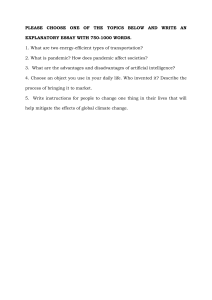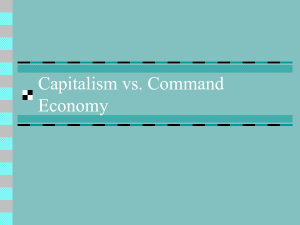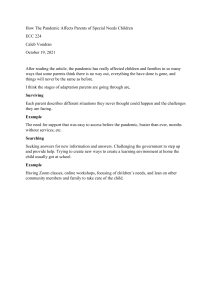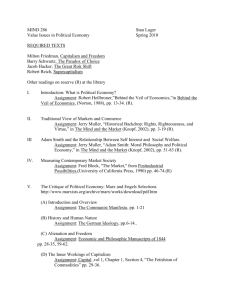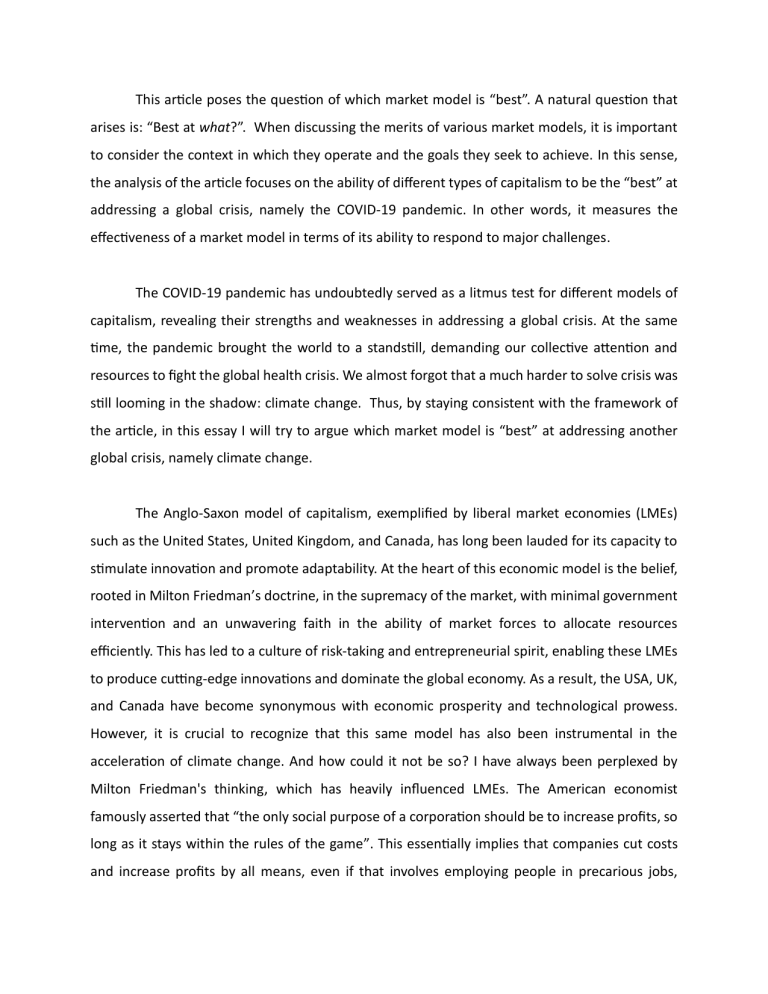
This article poses the question of which market model is “best”. A natural question that arises is: “Best at what?”. When discussing the merits of various market models, it is important to consider the context in which they operate and the goals they seek to achieve. In this sense, the analysis of the article focuses on the ability of different types of capitalism to be the “best” at addressing a global crisis, namely the COVID-19 pandemic. In other words, it measures the effectiveness of a market model in terms of its ability to respond to major challenges. The COVID-19 pandemic has undoubtedly served as a litmus test for different models of capitalism, revealing their strengths and weaknesses in addressing a global crisis. At the same time, the pandemic brought the world to a standstill, demanding our collective attention and resources to fight the global health crisis. We almost forgot that a much harder to solve crisis was still looming in the shadow: climate change. Thus, by staying consistent with the framework of the article, in this essay I will try to argue which market model is “best” at addressing another global crisis, namely climate change. The Anglo-Saxon model of capitalism, exemplified by liberal market economies (LMEs) such as the United States, United Kingdom, and Canada, has long been lauded for its capacity to stimulate innovation and promote adaptability. At the heart of this economic model is the belief, rooted in Milton Friedman’s doctrine, in the supremacy of the market, with minimal government intervention and an unwavering faith in the ability of market forces to allocate resources efficiently. This has led to a culture of risk-taking and entrepreneurial spirit, enabling these LMEs to produce cutting-edge innovations and dominate the global economy. As a result, the USA, UK, and Canada have become synonymous with economic prosperity and technological prowess. However, it is crucial to recognize that this same model has also been instrumental in the acceleration of climate change. And how could it not be so? I have always been perplexed by Milton Friedman's thinking, which has heavily influenced LMEs. The American economist famously asserted that “the only social purpose of a corporation should be to increase profits, so long as it stays within the rules of the game”. This essentially implies that companies cut costs and increase profits by all means, even if that involves employing people in precarious jobs, paying below the living wage, or destroying the environment. Because the only limitations are that companies do not violate laws and regulations or incur reputational costs that exceed profits generated. At the same time, Friedman was a prominent proponent of small government and deregulation. Effectively, from my understanding, he was stating that corporations should pursue profits while staying within the rules of the game, but the game should have as few rules as possible. No wonder, then, that this emphasis on short-term gains has frequently led to the neglect of long-term sustainability and responsible resource management. The Anglo-Saxon model's focus on individualism and the private sector has often resulted in the externalization of environmental costs, allowing businesses to evade accountability for their ecological impact. The market's failure to properly account for these costs has, in turn, exacerbated the climate crisis: LMEs have contributed disproportionately to the rampant exploitation of natural resources, the emission of greenhouse gases, and the widespread degradation of ecosystems. The same system that has fostered groundbreaking innovations and economic growth has also played a significant role in pushing our planet towards environmental catastrophe. However, quite ironically, in the current state of affairs, I believe this same system is the one best suited to save us from climate change, thanks precisely to its unparalleled capacity of disruptive innovations and technological progress. As a matter of fact, CMEs, with their long-term thinking, have contributed far less to climate change: the European Union emits half as much greenhouse gases per capita than the United States (Insee, 2022). Unfortunately, the EU in its current state has not proven able to mobilise the resources and skills needed to achieve the technological breakthroughs needed to fight climate. The United States are leading in the deployment of such cutting-edge innovations as carbon capture and storage technology (JPT, 2022). Similarly, an American company, Tesla, is the world’s leading producer of electric vehicles, as well as batteries needed to store the clean electricity deriving from renewable sources such as solar and wind power. European automakers, and most European countries for that matter, on the other hand, have been dragging their feet, with the most striking example being Germany pulling out of EU ban on petrol and diesel cars from 2035 just a month ago (Energywatch, 2023). On the same note, the LME’s supposed shortcomings in dealing with the COVID-19 crisis that are mentioned in the article, are not indicative of CMEs being better at handling crisis. While the relative unsuccess of the US’s and Britain’s virus-containment strategies was surely influenced by the component of individualism inherent to their cultures, in my opinion at least partial blame is to be attributed to the governments that were in charge at the time of the outbreak of the pandemic. Donald Trump's administration was notoriously criticized by experts for downplaying the severity of the virus, providing inconsistent and often contradictory messaging, and failing to mobilize federal resources quickly and effectively. These shortcomings were said to have left states to fend for themselves, leading to a patchwork approach to containment measures that the author of the article mentions. Similarly, Boris Johnson's government in the UK was accused of being slow to react to the unfolding crisis. The UK initially pursued a strategy of "herd immunity" before pivoting to lockdown measures, which some argue were implemented too late. Additionally, the government faced criticism for inadequate personal protective equipment (PPE) supplies, a troubled test-and-trace system, and inconsistent messaging. Therefore, while in this particular instance CMEs may have been at handling the emergency, we must exercise caution in extrapolating these results to a broader context. "Political capitalism," as exemplified by China's economic model, on the other hand, can be categorically excluded from the debate on the best economic models. My conclusion regarding this model is justified on several grounds. Some point to China’s rapid economic growth and development as the proof that this model works. What they forget is that up until a couple of centuries ago China accounted for a third of the entire world’s GDP. Then, thanks to industrialisation and colonization, first Europe, then the US became the largest economies. What happened in the past 30 years is just that China industrialized as well, and, with a population almost a fifth of the total world population, it was only normal that it would become a giant economy. However, even that happened because they ditched, to some extent at least, their old ways, where the State interfered much more. Now that with Xi Jinping they are going back to those way, we can observe that China’s growth is slowing down. As mentioned in the article, a significant issue with “political capitalism” is the prevalence of corruption, self-dealing, and lack of trustworthiness. The close relationship between government and business in this model can – and often does - lead to an environment where corruption thrives. The absence of strong checks and balances, coupled with a lack of transparency, can enable those in power to exploit the system for personal gain, ultimately undermining the effectiveness in dealing with crisis. A case in point is China’s zero-covid policy. Even when the flaws of this policy became evident, the Chinese leadership continued to uphold their position, mainly for Xi Jinping’s personal gain, or rather avoiding a personal loss. Indeed, the Chinese leader has tied his authority and credibility to an image of infallibility. This has created a situation where decisions, once made, are difficult to reverse, even if evidence suggests that they may be causing more harm than good. Additionally, political capitalist systems are not as innovative as they sometimes are portrayed to be. Chinese vaccines turned out to be not as effective as their Western counterparts, and Chinese companies have been caught copying technologies from Western companies on numerous occasions. Furthermore, the Chinese government's insistence on aligning private enterprise with its goals can create a risk-averse culture that discourages creativity and experimentation. Businesses may be hesitant to pursue unconventional ideas or strategies for fear of government disapproval or even punishment, leading to a stifling environment where innovation struggles to thrive. In conclusion, while LMEs are often better equipped to handle crises due to their inherent flexibility and market-driven policies, CMEs can provide a more stable economic environment that minimizes the occurrence of crises in the first place. Syed Tahir Bukhari (Mat. 3143608) References 1. https://www.insee.fr/en/statistiques/6478761#:~:text=The%20European%20Union%20( EU)%20emits,lower%20than%20the%20world%20average. 2. https://jpt.spe.org/global-ccs-projects-co2-capture-capacity-grows-nearly-50-in-2022 3. https://energywatch.com/EnergyNews/Policy___Trading/article15274868.ece

